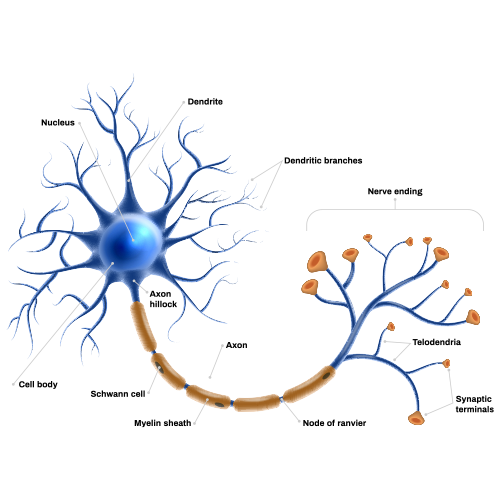Our Brain
Nerve cells, called neurons, are the fundamental elements of the central nervous system. The central nervous system is made up of about 100 billion neurons (10 to the power 11). The brain grows at an amazing rate during development. At times during brain development, 250,000 neurons are added every minute. At birth, almost all the neurons that the brain will ever have are present. The first three years of life are a period of incredible growth in all areas of a baby’s development.
A newborn’s brain is about 25 percent of its approximate adult weight. But by age 3, it has grown dramatically by producing billions of cells and hundreds of trillions of connections, or synapses, between these cells. Parents should grab the chance of the first years to help their children get off to a good start and establish personalized patterns for life-long learning.
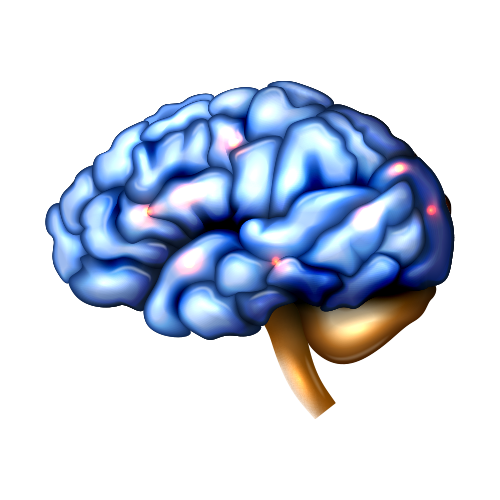
The brain can be considered the most complex organ in human body and the centerpiece of your nervous system. Although a human brain works as a unified whole, neuroscientists can identify areas within it that perform specific functions.
The brain is organized into three interconnected layers: the central core, limbic system, and cerebral cortex, all of which contain structures that regulate everyday life.
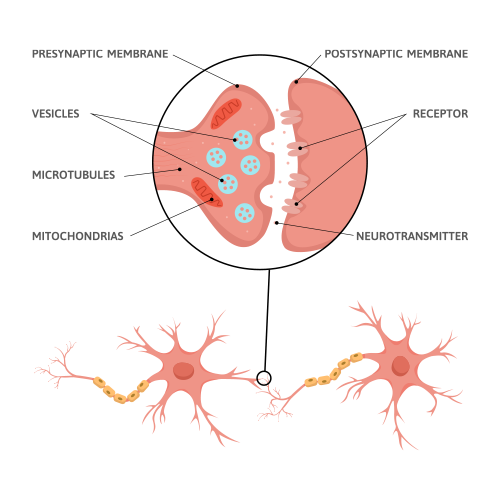
The central core helps regulate basic life processes, including breathing, pulse, arousal, movement, balance, sleep, and the early stage of processing sensory information. The limbic system mediates motivated behaviors, emotional states, and memory processes.
It also regulates body temperature, blood pressure, blood sugar level, and other housekeeping activities. The cerebral cortex directs the brain’s higher cognitive and emotional functions. It is divided into two almost symmetrical halves called cerebral hemispheres.
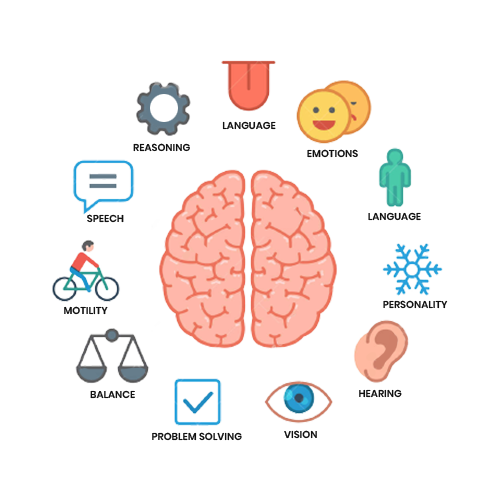
Each hemisphere contains four lobes
- Frontal Lobe
- Occipital Lobe
- Parietal Lobe
- Temporal Lobe.
These lobes oversee all forms of conscious experience, including perception, emotion, thought and planning, as well as many unconscious cognitive and emotional processes.
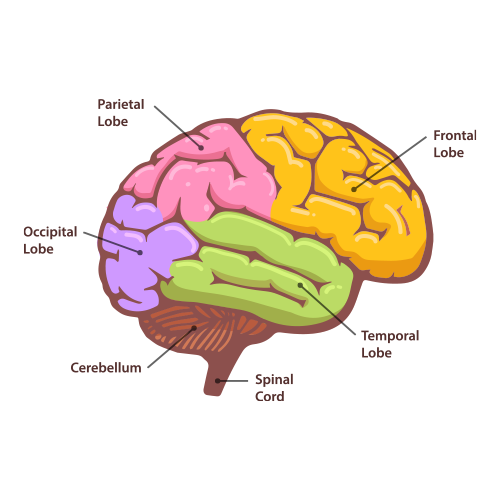
Neurons Structure
Nerve cells, called neurons, are the fundamental elements of the central nervous system. The central nervous system is made up of about 100 billion neurons (10 to the power 11). The brain grows at an amazing rate during development. At times during brain development, 250,000 neurons are added every minute. At birth, almost all the neurons that the brain will ever have are present.
The first three years of life are a period of incredible growth in all areas of a baby’s development. A newborn’s brain is about 25 percent of its approximate adult weight. But by age 3, it has grown dramatically by producing billions of cells and hundreds of trillions of connections, or synapses, between these cells. Parents should grab the chance of the first years to help their children get off to a good start and establish personalized patterns for life-long learning.
